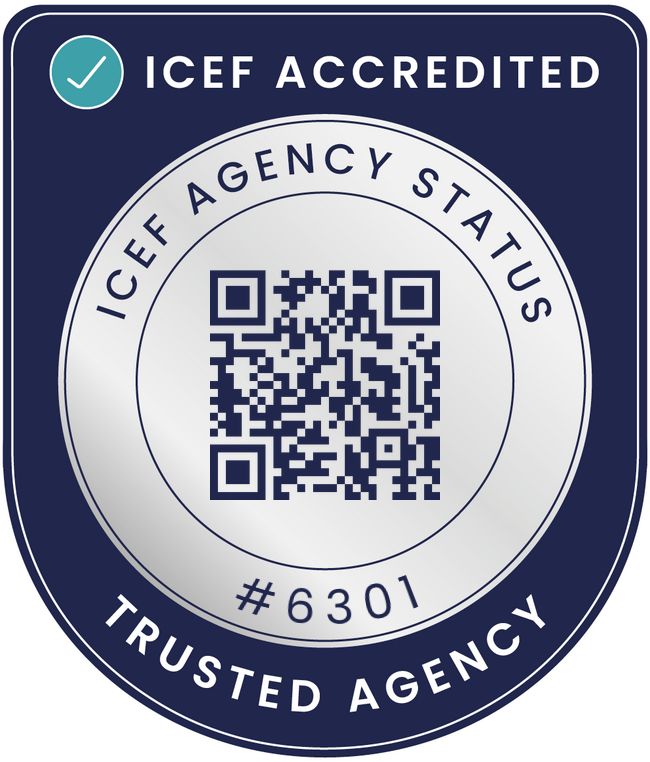 Shiva Krishna
Shiva Krishna

Confused about which country to choose between Germany and the US? Many of you face the same confusion when you decide to study abroad. Although both countries have benefits, world-class education, global exposure, and exciting career opportunities, they differ from each other in certain respects.
Germany is home to more than 400 educational institutes and offers a unique combination of innovation and history. On the contrary, the US is a leading hub for academic excellence, housing top universities such as Havard, Standford, Yale, MIT, etc.
The guide uncovers what makes these two countries differ from each other. After reading the guide, you can make a sound decision about the USA vs Germany. So, let’s explore the core differences to help you make a sound choice to set off on the path to a successful global career!
Before embarking on your academic adventure, it is important to understand the differences between the US and Germany in terms of tuition fees, language criteria, living expenses, job opportunities, and post-study options. The points of difference between the 2 countries discussed below will help you make an informed decision about your educational goals and career aspirations:

USA:
|
Engineering |
Business Management |
Computer Science |
|
Medicine |
Mathematics |
Business Analytics |
|
Finance |
Social Sciences |
Health Sciences |
|
Cybersecurity |
Data Science |
Law |
|
Software Engineering |
Economics |
Humanities |
|
Information Technology |
Nursing |
Physics |
|
Psychology |
Life Sciences |
Sports |
Germany:
|
Engineering |
Business Administration |
Social Sciences |
|
Sciences |
Humanities |
International Business |
|
Master of Management |
Mathematics |
Mechanical Engineering |
|
Chemical Engineering |
Data Engineering |
Dentistry |
|
Economics |
Electrical Engineering |
International Law |
|
MBA/Global MBA |
Medicine |
Arts |
|
Industrial Engineering |
Computer Science |
Language & Literature Studies |
The education system is another major point of difference in the USA vs Germany debate.
US: The US houses 4000+ universities, including some of the most renowned colleges. From Havard and Yale to MIT and Standford, the options are many. These institutions offer robust courses, world-class research opportunities, and state-of-the-art campus amenities. The US follows a 4-point GPA, or four-point grading technique and letter system (A-F), where A is the highest and F is the lowest.
Germany: Germany is mostly famous for its public universities, although the country is home to some of the best private colleges. Public and private institutions are further divided into the University of Applied Sciences, Universities of Art & Music, and Academic Universities. Besides English, these universities also offer courses in German. So, students get a chance to learn a new language. The German grading system stands out. It follows a scale from 1.0 to 5.0, with 1.0 being the best (very good) and 5.0 being a failure. Students get grades in decimals like 1.3 or 2.5. A lower grade means a better performance, unlike in some other countries.

The cost of studying in these countries cannot be ignored in the USA vs Germany debate. It is one of the main factors you need to consider so you can follow your dreams.
USA: The tuition fees in the US, especially in universities, are quite high for UG courses. The fees in public American colleges are also high but lower than the fees in private institutions in America. But you do not need to worry. With scholarships and education loans, you can easily fulfil your academic dreams. If you pursue a PhD course, you can get stipends and teaching assistantships to cover the cost.
Germany: Germany is known for its no- to low tuition fees. Surprised? Yes, what you heard is true. Public universities levy only semester contributions, student union membership, and administration fees. Most public colleges provide tuition free of cost. So, studying in Germany is more affordable than in many countries.
Here’s a quick breakdown of the cost of studying in the US and Germany:
|
Program |
Tuition Fees in the USA (in USD) |
Tuition Fees in Germany (in EUR) |
|
Undergraduate degree |
30,000 - 60,000 |
10,000 - 30,000 |
|
Graduate degree |
50,000 - 60,000 |
12,000 - 40,000 |
|
Doctoral program |
28,000 - 55,000 |
100 - 350 |
|
Diploma/ Certificate/ Vocational training |
10,000 - 26,000 |
100 - 350 |
After education expenses, the cost of living is another type of expense that you should consider when comparing the USA vs Germany.
USA: Living expenses in America drastically range from city to city. Major cities like New York City, San Francisco, and Los Angeles are high. In contrast, midwestern and southern states have low living costs. You can choose to live in shared apartments or dormitories to cut down on expenses.
Germany: While major German cities such as Munich or Frankfurt have high living costs, they are lower than major US cities. Berlin, popular for its thriving culture, is also expensive but is more affordable than US metropolises. Public transport is great, and you can travel in trains, trams, and buses over private vehicles.
|
Expenses |
Cost of living in the USA (USD) per year |
Cost of living in Germany (EUR) per year |
|
Accommodation |
9,000 - 15,000 |
3,000 - 5,000 |
|
Food |
3,600 |
2,000 |
|
Utility bills |
300 - 1,200 |
200 - 900 |
|
Phone & Internet |
600 - 1,800 |
350 - 400 |
|
Public Transport |
1,200 - 3,600 |
300 - 2,400 |
|
Entertainment |
3,600 - 7,500 |
700 - 800 |
|
Health insurance |
500 - 1,000 |
1,100 - 1,200 |
|
Clothing |
50 – 150 |
93 |
Securing a student visa is important to fulfil your dreams of studying abroad. Student visas in the USA vs Germany vary.
USA: You need an F1 to pursue a post-graduate degree, a J-1 visa for an exchange program, and an M-1 visa to pursue a vocational course. The student visa lets you stay in the US for the whole course duration and work part-time for 20 hours per week.
Germany: The student visa in Germany is called Visum Zu Studienzwecken or more commonly D-Visa. It lets you stay and stay in the country throughout your course duration and work part-time for 120 days per year.

After completing your studies, you may want to stay back, work, and gain valuable experience. Hence, comparing the USA vs Germany in terms of post-study work visas is crucial.
USA: The US offers Optional Practical Training which is a work and stay-back permit. You can apply for it and stay in the country for a year. If you have studied a STEM course, you can stay for 3 years. Besides OPT, you can apply for the H1-B visa, which lets you work for 6 years with a sponsoring employer. The other visas you can apply for are F1 Visa, M1 Visa, and J1 Visa based on the eligibility criteria.
Germany: Germany offers a temporary residence permit, which lets you stay in the country that lets you stay for 18 months after finishing your course. If you have secured a job offer before completing your course, you can directly apply for a Blue Card or residence permit.
After completing your studies and securing a job, some of you might want to settle down permanently in your academic destination. Now, here you need to compare the USA vs Germany.
USA: You need to work and temporarily reside in America for at least 5 years to apply for permanent residency. If you meet the criteria, you will get a Green Card, which is a permanent residency permit.
Germany: To permanent residency in Germany, you need to stay and work for at least 5 years. You will be eligible for German citizenship only after 8 years of residence or if you get married to a German citizen.
Germany and America are excellent study destinations, but choosing one is based on your priorities. Both these countries are home to some of the top-ranked colleges and offer diverse career options. While Germany is affordable regardless of your field of education, studying in America comes with a high cost.
Consider your aims and budget before choosing your destination. To understand more about studying in the USA vs Germany, connect with Career Gyan. Our educational consultants will help you select the right country based on your needs and preferences. Whether you want to get admission to a top university or thrive in an offbeat location, your success is of utmost importance.
Reach out to Qck Loans to get financial assistance in the form of education loans, whether you plan to study in America or Germany. Contact us today, and let’s make your journey remarkable!
Pursuing higher education in Medical and STEM (Science, Technology, Engineering, and Mathematics) fields opens doors.
Membership


Accreditation

Countries
2025 © All rights reserved by careergyan.co